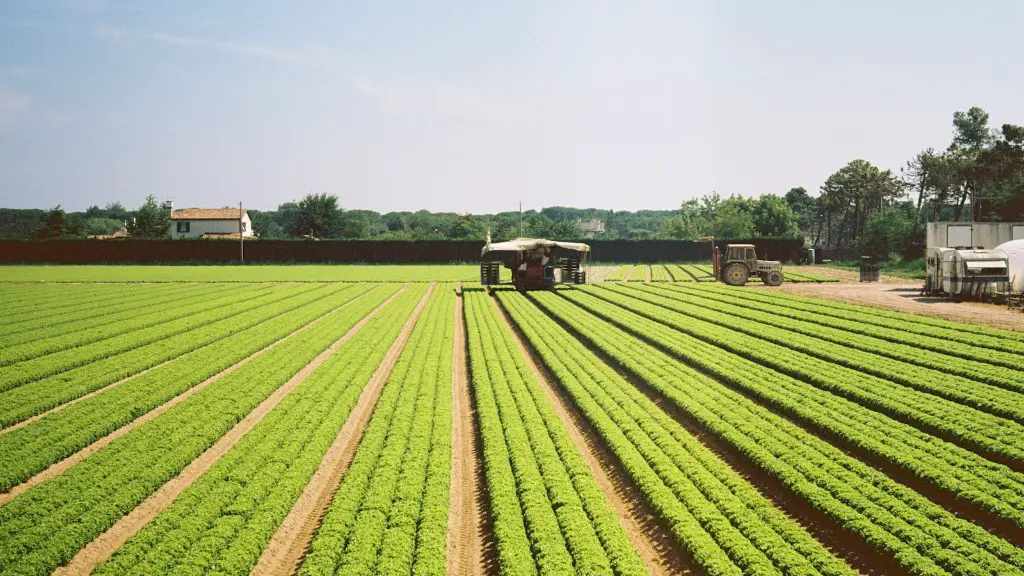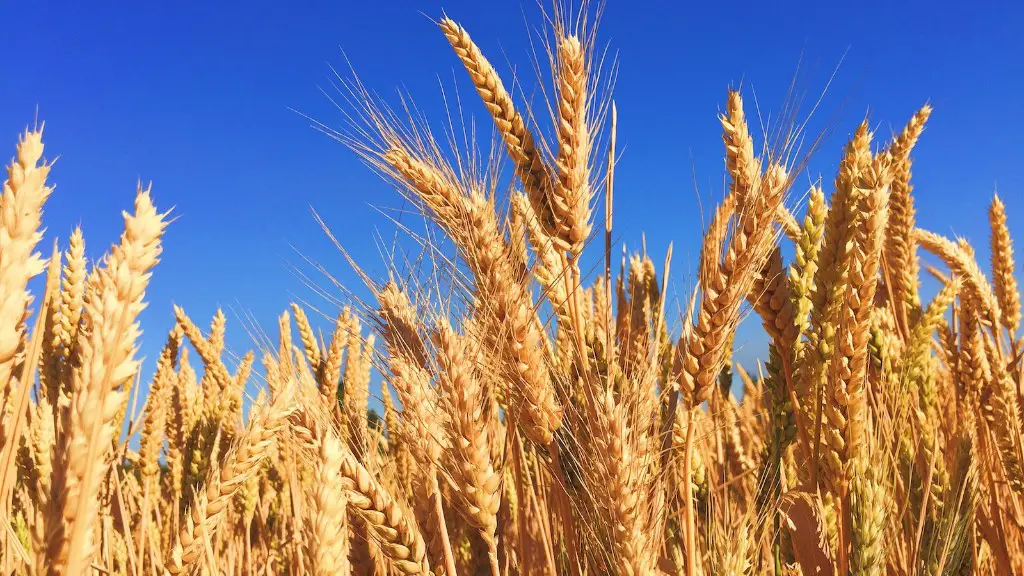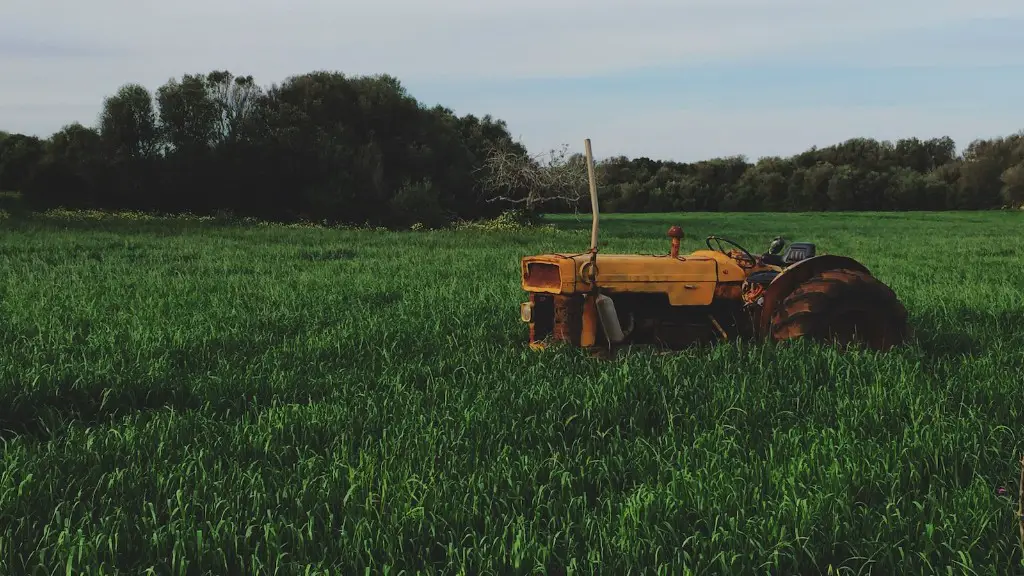Agriculture is an important part of Africa’s economy and plays a crucial role in society. It provides food, livelihoods, and economic and environmental security. It also provides communities with access to safe drinking water and sanitation, and contributes to poverty reduction, land management, and resilience to natural disasters. It is critically important for Africa’s future and can help create stability and improve quality of life for individuals and families.
Agriculture is an incredibly important industry for Africa because it provides employment to over half of the African population. As well as providing employment, it also contributes significantly to Africa’s Gross Domestic Product (GDP). This means that any growth or decline in GDP is closely linked to the performance of the agricultural sector. Furthermore, since many of Africa’s small-scale farmers and rural communities rely on subsistence farming for their livelihoods, agricultural activity is also closely linked to poverty reduction.
Agriculture also plays an important role in environmental protection. It provides clean energy sources such as biogas, animal dung and forest products, and helps to conserve soil, water and vegetation. Sustainable agricultural practices, such as water harvesting and conservation, are essential for ensuring natural resources are available for generations to come.
Agriculture is also an essential part of maintaining food security. Africa has very limited access to food imports, so it is dependent on locally available food sources. Without these, many African countries are left vulnerable to food shortages and malnutrition. Furthermore, agricultural production is closely linked to the health of African citizens. Poor agricultural production can lead to reduced supplies of nutritious foods, which can result in poor nutrition and disease.
Finally, agriculture is important for Africa’s future growth and development. By providing employment, revenue, and food security, it can help to create a stable and prosperous future for the continent. Investment in agriculture has the potential to improve quality of life for millions of people and contribute to the development of sustainable, resilient economies.
Role of Technology
In order for African agriculture to reach its full potential, it is key that the necessary technological advancements are implemented. Technology can help increase the efficiency of agricultural production and decrease the need to depend on human labor alone. It can also increase food production and reduce the risks associated with climate change. For example, improved irrigation systems and advanced soil testing methods can help ensure the health of the soil, while GPS-enabled data collection can help farmers be more efficient and improve yields.
The use of technology can also help improve the safety and quality of food produced in Africa. For example, the use of chemical sensors and smart labels can help detect and prevent food contaminants, which can help reduce make sure the food is safe for consumption. In addition, blockchain and digital ledger systems can be utilized to track the origin of food and help identify areas of contamination.
The use of digital services and mobile applications is another way that technology can transform African agriculture. For example, apps such as FarmCrowdy and Farmerline provide training materials and connect farmers to markets and buyers online. These services also help farmers obtain financing and access new technologies, which can lead to improved agricultural processes, increased yields, and enhanced food security.
Overall, technology has the potential to have a hugeimpact on African agriculture. By reducing the need for manual labor and introducing new, innovative methods of production and tracking, technology can drastically change the future of African agriculture and benefit the African economy.
Understanding Cultural Practices
Agriculture also plays an important role in preserving African cultural practices and heritage. Recognizing and understanding the cultural significance of agriculture allows farmers to use these practices as a guide to farming and to ensure sustainable, healthy, and economically viable agricultural systems. This includes traditional forms of soil management such as agroforestry, terrace farming and plant diversity, as well as the use of traditional crops.
By understanding cultural practices, communities can work together to use techniques and knowledge that have been passed down for generations to improve agricultural production and build resilience. For example, Ethiopia has embraced traditional farming techniques to help improve crop yields and soil health. Additionally, the practice of bushfallow farming in Nigeria allows farmers to maintain the soil quality while protecting nearby forests and providing a steady source of income.
It is also important to recognize the importance of people in African agriculture. Farmers rely on strong communities and are dependent on access to resources and markets. Rural communities bring a special kind of knowledge and experience that helps to foster sustainable agricultural production and strengthen food security.
Through understanding and respecting traditional cultural practices, African communities can continue to improve and innovate in their agricultural practices. This will lead to increased agricultural productivity and enhanced food security and will help build a brighter future for generations to come.
Investing in Agriculture
The potential for African agriculture is great and there are many ways that it can be supported and invested in. Investment in infrastructure, such as irrigation and transportation, as well as in education and technology can help enable farmers and communities to produce more and higher quality food. This is essential for improving food security and reducing poverty.
In addition, public and private investments in agricultural research and development can help increase agricultural productivity and stimulate economic development. For example, research can focus on crop diversification, pest and disease control, soil conservation, and irrigation systems. By investing in agriculture, countries can ensure that their agricultural systems are stable and resilient in the face of environmental threats.
Finally, the provision of subsidies to farmers and the establishment of agricultural cooperatives can help make African agriculture more competitive and encourage farmers to produce more and better quality products. Cooperatives provide small-scale farmers with access to financing, training, and knowledge sharing, and can also help farmers access markets for their products.
Overall, investing in African agriculture is essential for transforming the agricultural sector and building a strong and sustainable future for the continent.




